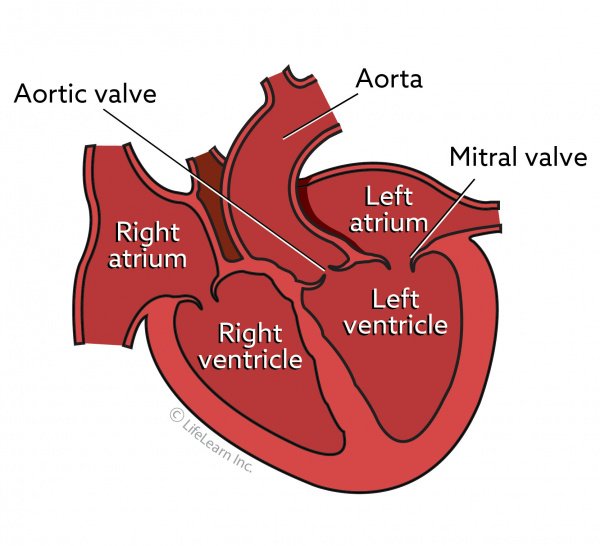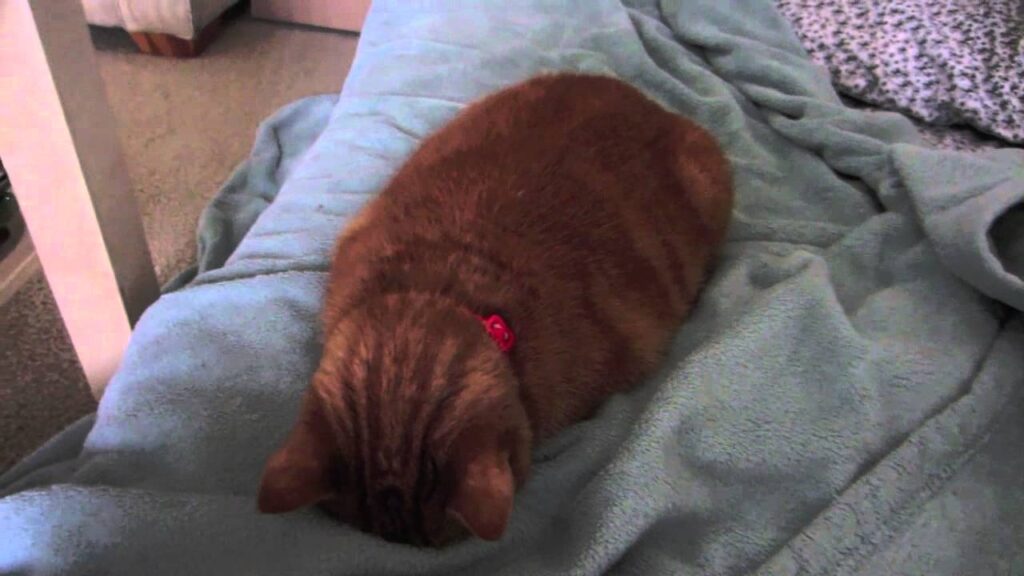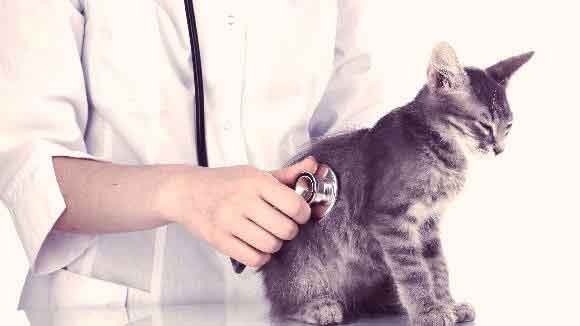The average size of a domestic cat’s heart is small, about half to three-quarters the size of a golf ball.
To compare, a human heart is about one and a half times as large as a golf ball, while a dog’s heart is the size of a tennis ball.
Even though their heart is small, cats still have an impressive circulatory system. For example, their hearts pump blood at a rate of 240 beats per minute when they’re resting, which increases to 400-500 beats per minute when they’re active.
This high rate ensures that their bodies get the oxygen and nutrients they need to stay healthy and active.
So, even though cats may seem like low-maintenance pets, they still need plenty of love and care to keep their hearts purring.
Do Cats Have A 4 Chamber Heart?

Did you know that your cat’s heart is actually very similar to your own? Just like your heart, a cat’s heart has four chambers: the right and left atria, and the right and left ventricles.
The main difference is that a cat’s heart is slightly smaller in proportion to their body than a human heart.
Here is how your cat’s heart works:
Veins carry exhausted blood from the body to the right atrium, where it is stored momentarily before being pumped into the right ventricle.
The right ventricle then pumps the blood into the lungs, where it is infused with fresh oxygen.
The blood then flows from the lungs back into the heart via the left ventricle.
The largest muscle of the heart, which is located in the left ventricle, pumps the freshly oxygenated blood to all other organs and body parts.
Once the blood is circulated and exhausted, veins carry it back toward the heart via the right atrium to begin the process again.
Just like that, your cat’s heart is constantly pumping fresh oxygenated blood through their body!
Why Are Cats’ Hearts Enlarged?
A cat’s heart can get enlarged due to a medical condition referred to as Hypertrophic Cardiomyopathy (HCM).
HCM is characterized by the thickening of the heart’s walls. There are two types of HCM – dilated cardiomyopathy and restrictive cardiomyopathy.
Interestingly, there are lots of heart issues that can affect cats but HCM is the commonest heart condition in our feline friends. 1 out of every 10 cats suffers from this condition.
However, before a vet diagnoses a cat with HCM, he will first rule out other possible causes of thickening of the heart like systemic hypertension and aortic stenosis.
How Long Can A Cat Live With A Hole In Its Heart?
Ventricular septal defect is a common health issue among animals and for the most part, animals can live a long and healthy life even with this defect.
In most cases, cats will still live up to their expected 12-15 years depending on their diet and care.
However, the quality and length of your cat will depend on where the hole is and how severe it is.
Because this condition is hereditary, vets advise that any affected parent or kitten should not be bred because they will inevitably pass the defect to their offspring.
If your feline friend has a hole in her heart, be sure to work closely with your veterinarian to ensure that your cat is getting the best possible care.
Can You Break a Cat’s Heart?

Dogs are more expressive than cats and as such, one can easily think that felines don’t have fragile hearts.
But you can break your cat’s heart without even realizing it depending on how you treat her. For instance, felines have very sensitive ears and one easy way of crushing their spirit is by shouting at them.
A cat can hear sounds of up to 64,000 Hz and they can detect the source of the sound as far as three meters away.
When you shout at them, the cat will hear it even more loudly than humans and this could cause them to retreat and hide.
Cats are also very tidy creatures and they could easily get irritated with a dirty litter box.
If you fail to clean their litterbox regularly, the cat might start ignoring it altogether and some may even leave some “presents” all over the house. This is their way of communicating their heartbreak in the hope that you will clean their litterbox.
Additionally, cats are not intelligent enough to make a connection between punishment and bad behavior. For instance, if they break something or make a mess, you might be tempted to punish them in some way.
Unfortunately, they will not connect the dots and the punishment will only break their hearts and cause them not to trust you.
As a cat owner, you must be ready to deal with the occasional mess and show your unconditional love for your feline friend – that’s a language they will always understand.
Surprising Fact:
Cats’ hearts are proportionally larger than those of most other animals. A cat’s heart makes up about 0.45% of its total body weight, while a human heart only accounts for 0.29% of our total body weight.
So what causes this difference? There are a few theories. One possibility is that enlarged hearts in cats may be an evolutionary adaptation that allows them to better withstand the rigors of chasing down prey.
Another theory suggests that because cats consume lots of protein, their hearts may need to be larger to efficiently pump oxygen-rich blood to their muscles.
Whatever the reason, one thing is for sure: with such big hearts, cats are sure to steal our own!
Last Thoughts
So in summary, your cat has a smaller heart than dogs and humans. However, the cat’s heart is proportionally larger.
As you may know, the heart is a vital organ and it is therefore important to take good care of it through proper diet and sufficient exercise.
By so doing, your cat will live a long healthy life.
Related Post: Do Cats Have Lungs?

Hi! I am Eleanor Price. I started this website after my cat, Louie, almost died from a case of botulism (a type of food poisoning often caused by bacteria that grow on food items). Turned out that my cat’s diet was the problem. I have made it my duty to provide the best information and recommendations about everything cat lovers need to know about their felines’ health and wellbeing. My goal is to find the most informative content on anything feline-related and share it with fellow hardworking kitty lovers.

